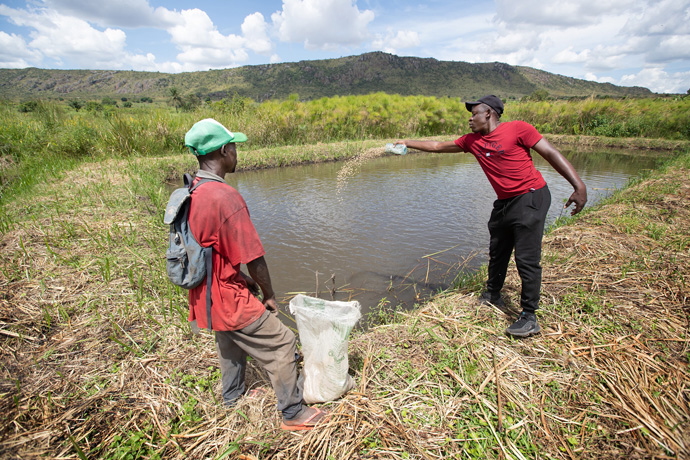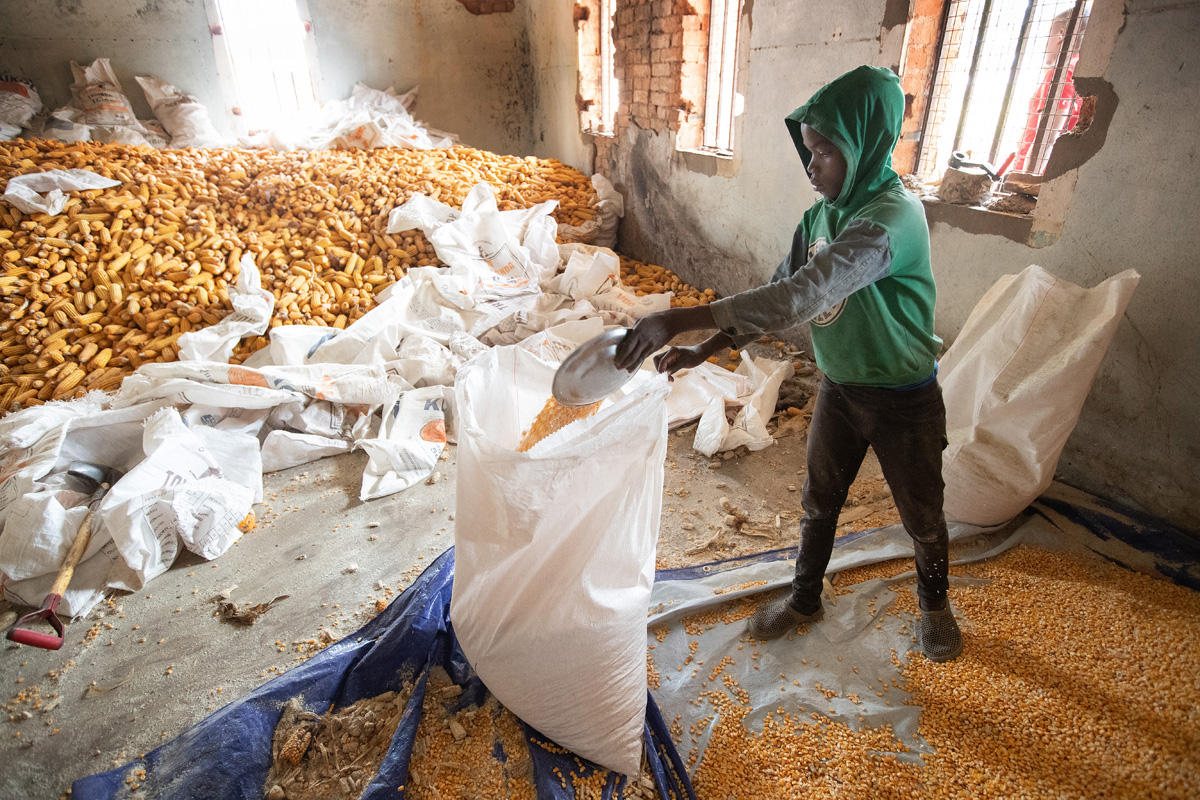Key points:
- Bishop Warner H. Brown was elected in 2000 along with Bishops Jose Quipungo and Gaspar João Domingos, both from Angola, and they discussed a conference-to-conference partnership.
- Brown, then bishop of the former Rocky Mountain and Yellowstone conferences, challenged the conferences to provide pastoral support to United Methodist pastors in Angola.
- Today, the Mountain Sky Conference provides $50 a month to over 100 clergy and supports an agricultural program overseen by a missionary.
A covenant relationship begun by newly elected bishops over 20 years ago is still going strong today.
Bishop Warner H. Brown was elected in 2000 along with Bishops Jose Quipungo and Gaspar João Domingos, both from Angola, and they discussed a conference-to-conference partnership. Angola’s decades-long civil war was still going on at the time and didn’t end until 2002. Brown, then episcopal leader of the Yellowstone and Rocky Mountain conferences, was finally able to visit and returned with a challenge to the conferences to provide pastoral support to United Methodist pastors in Angola.
“A new partnership with bishops trying to rebuild a country after war seemed like wonderful place for us to jump in and work together,” Brown said.
“Salary support was a critical need that I thought the conferences could take on as best matched them. Even for small congregations that could only do a little, that little bit would make a difference and help them to develop their mission muscle.”
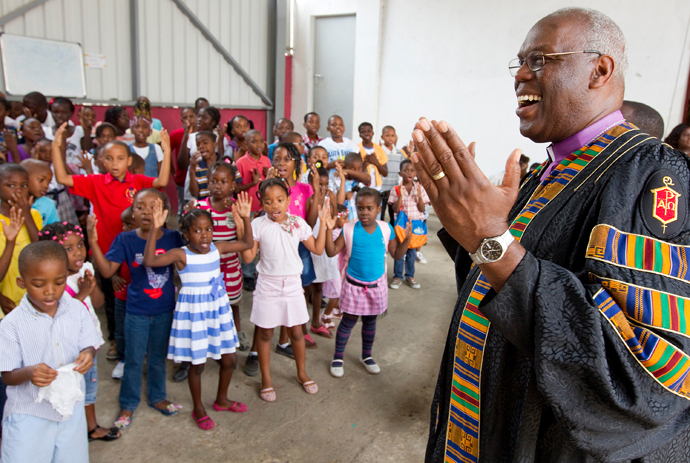
The partnership began with both the East and West Angola conferences but the work that continues today is solely in East Angola. The East Angola Conference covers a large rural area with some of the poorest communities in the country.
“There was no way for them to derive enough income from the congregational model. Their congregations could provide them produce from their gardens but little money,” said the Rev. Sue King, who was on the first conference trip to Angola in 2003.
By providing a system of monetary support, she said, the East Angola Conference was better able to recruit, retain and sustain new clergy. Churches in the Yellowstone Conference raised money to be able to provide 40-50 Angolan pastors with $40 per month.
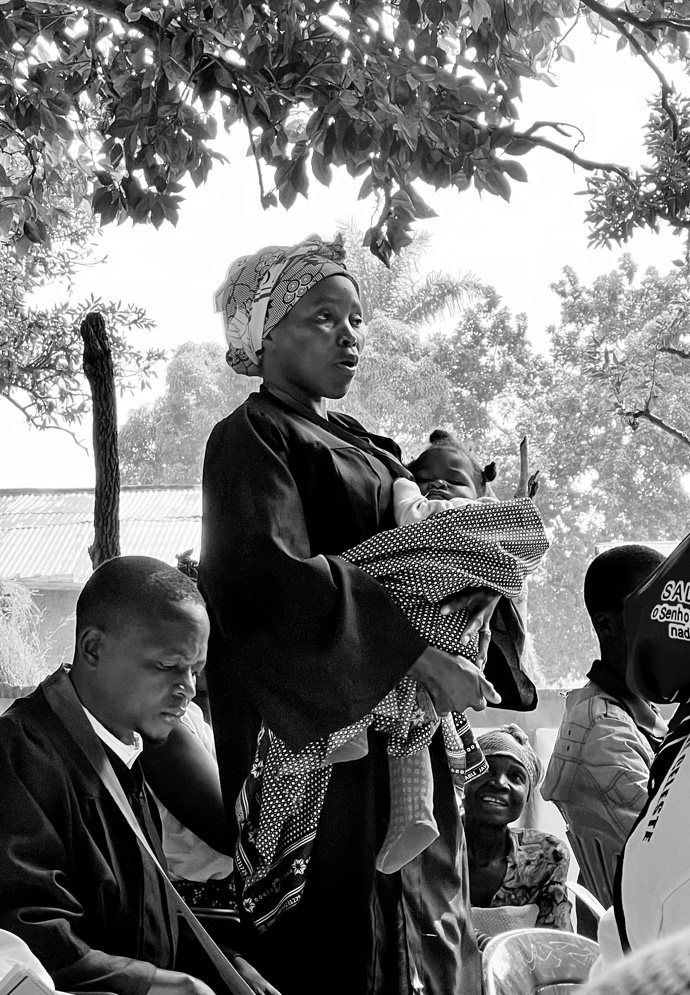
King said that school fees might take up 20% of a pastor’s monthly budget, so this “love offering” ensures pastors can send their kids to school and care for their families.
“One got some medicines and set up a pharmacy in his village. Some have bought land to grow and sell food,” she said.
Nowadays, the Mountain Sky Conference — created by the 2018 merger of the Yellowstone and Rocky Mountain conferences — is able to provide $50 per month to 115 East Angola Conference pastors. The program is overseen by Ken Koome, a Kenyan missionary for the United Methodist Board of Global Ministries serving as the finance officer for the East Angola Conference.
“The support program wouldn’t work without him,” King said. “Every pastor has a bank account set up now and we can wire the money directly to them.”
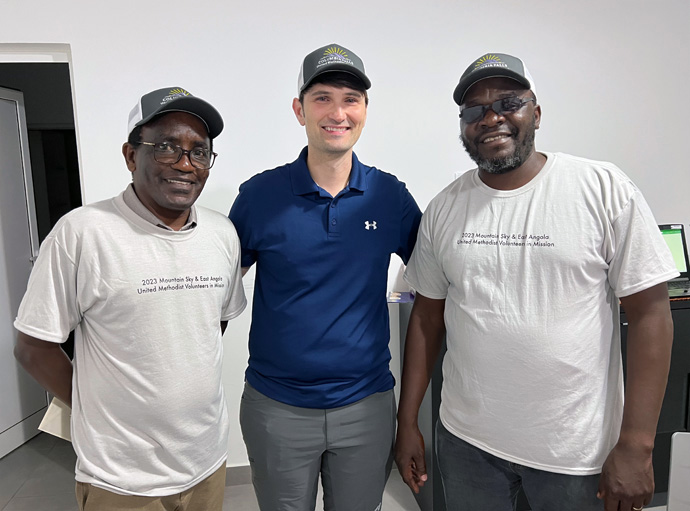
In July, a team from the Mountain Sky Conference traveled to East Angola and the Quéssua Mission, its first post-COVID mission trip.
“Ken said, ‘We wondered if you forgot us’ and we said, no, of course not,” said the Rev. Janet Mulroy, the conference’s mission engagement and resource strategist. “He said it was important that we came and gave hope.”
How to help
- Supplemental salary support for pastors: Advance #3021453
- Quéssua agriculture: Advance #3022272
In addition to ongoing pastor salary support, the Yellowstone and Rocky Mountain conferences helped to create an agricultural program at Quéssua. Kutela Katembo, a Global Ministries missionary with a degree in agriculture from Africa University, is in charge of the program. He was commissioned at the 2015 Yellowstone Annual Conference, and Mountain Sky remains his main support along with some help from a covenant relationship with the Florida Conference.
Katembo oversees the 20-hectare (about 50 acres) farm on the mission grounds, growing crops as well as raising chickens, pigs, goats, cattle and tilapia. East Angola is a food-insecure area, and much of the harvest is used to sustain the community, be it through providing food, feed for animals or seedlings for villagers to grow their own crops. Katembo also helps educate them on farming techniques and the right types of crops to grow for their conditions.
“Quéssua is surrounded by villages with people who can’t afford to eat three times a day,” Katembo said. “Whenever we have something from the farm, we use it to support the kids.”
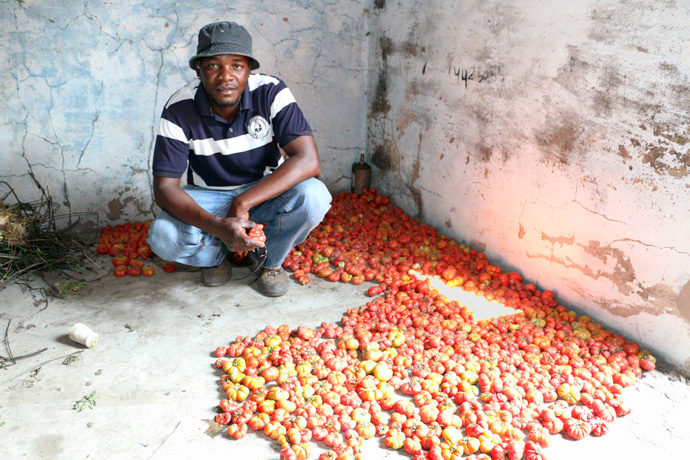
Sally McConnell, former missions coordinator for the Yellowstone Conference, said the growth of the farm has been remarkable, considering that it started from literally nothing. The entire area had been cleared out during the war.
“When I was there, there was nothing because they were still cleaning land mines from the property that was to become the farm,” she said.
Katembo said that everything on the farm had been stolen or destroyed and he had to rebuild from scratch.
“Prior to the war, Quéssua was the food basket for the community, but there was just bush when I got here,” he said. “With the support of our partners, we were able to rehabilitate structures and add orchards, fish and animal production.”
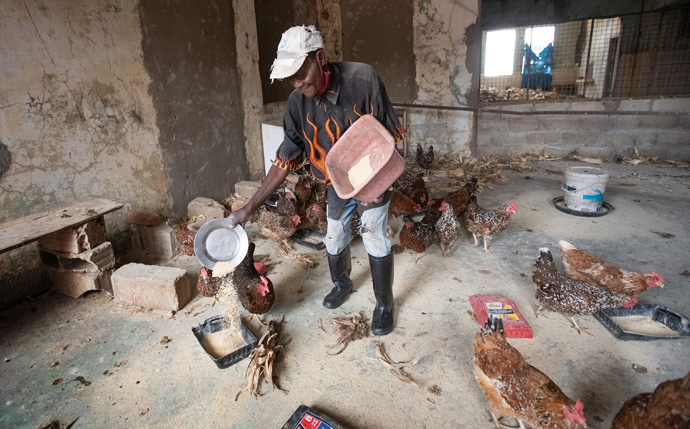
Being in sparsely populated rural areas themselves, Mountain Sky churches can relate to the concerns of their brothers and sisters in East Angola.
“Farming and that rural sense of need to feed people connected our area to theirs. There are natural connections of taking care of the land, growing your own food, caring for community,” said the Rev. Jared Stine, pastor of Columbia Falls United Methodist Church in Columbia Falls, Montana, and a member of the team that visited in July.
But the similarities don’t stop there, said King.
“Pastors in our conference also serve in a context where our churches can’t support a full-time pastor, and we have transportation challenges like they do,” she said, noting that she drives 194 miles every Sunday to the three churches she pastors in North Central Montana.
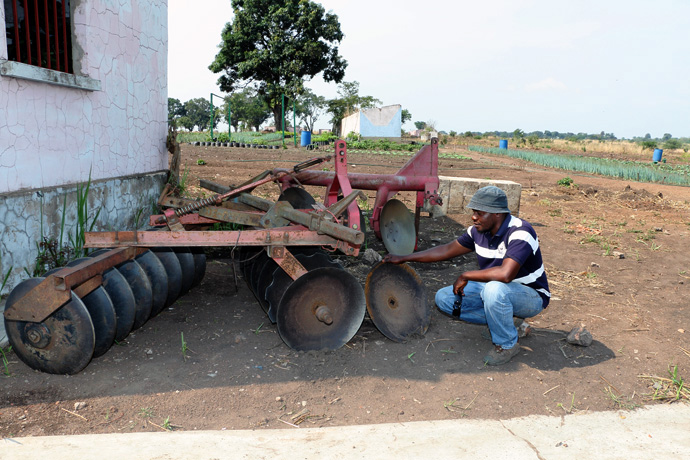
Knowing those challenges, it made sense that raising funds to buy trucks for both Katembo and Koome was a priority.
Both the conference and its churches have found creative ways to fundraise.
Stine said his church, which has about 100 members, hosted a “Music for Missions” concert with local United Methodist choirs, handbell ensembles and individual musicians performing before a meal and silent auction, raising $2,400. Every summer, the church has a “Bounty for All” box outside where people can bring excess produce from their gardens, which anyone can take and leave a donation that also helps fund the East Angola ministry.
Mulroy said that every year, the Mountain Sky Annual Conference hosts a “Tug of Love,” a single-elimination tournament where people can donate to their favorite team and half goes to East Angola.
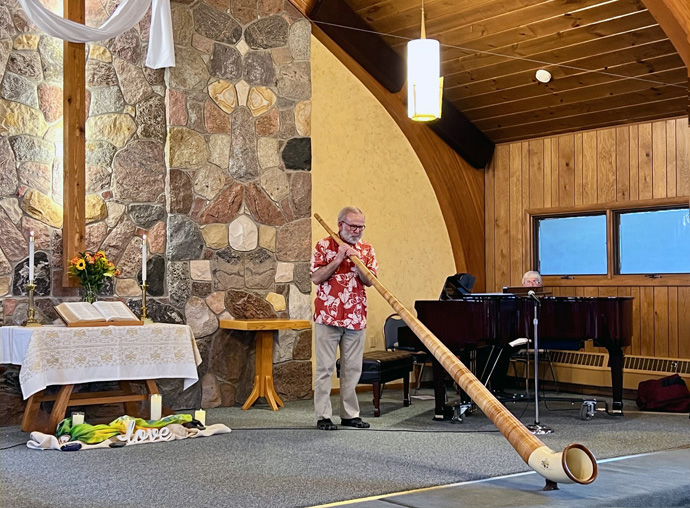
The Rev. Jeremy Scott, pastor of Johnstown United Methodist Church in Johnstown, Colorado, said his church was “all in” after he returned from a 2012 mission trip to Quéssua and shared what he saw.
In 2020, they raised $3,000 to help reestablish the farm’s depleted seed supply. For the past few years, Quéssua was a fundraising project for online vacation Bible school and they sent about $3,800 in April 2022, which helped start the tilapia farm.
Scott said East Angola’s goal to move beyond subsistence farming into self-sustaining farming struck a chord with his church.
“We’re about 300 members, about 175 in the pews on Sunday,” he said. “It’s not a big church, but there’s lots of big hearts.”
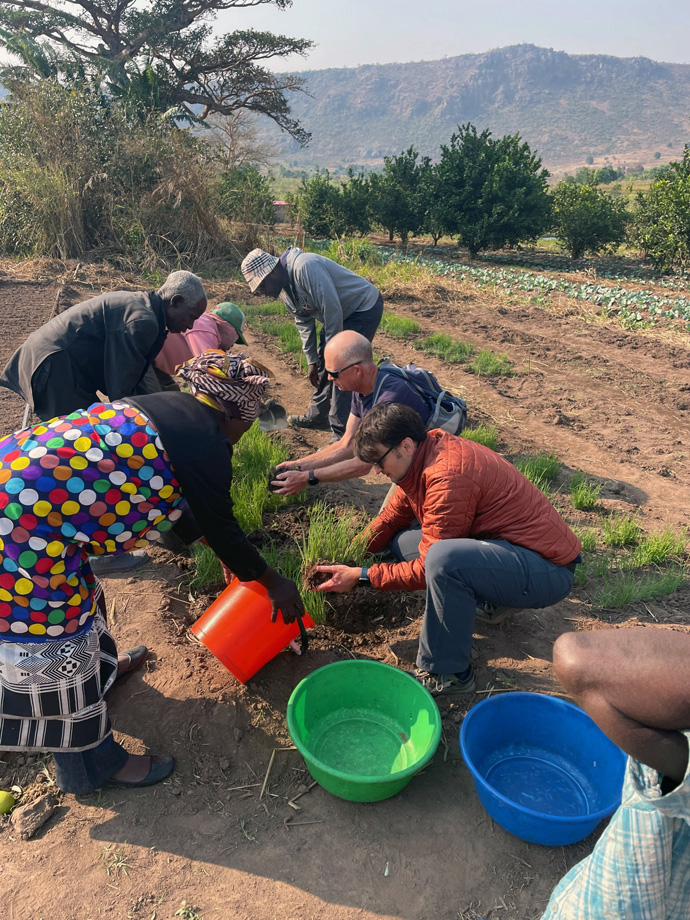
As new mission teams return with updates, previous team members can celebrate the positive changes taking place in East Angola.
“When I was there, Quéssua didn’t have regular electricity and many of the buildings were still bombed out from the war,” said Scott. “It’s changed so much since I was there.”
Mulroy, who visited Quéssua for the first time in July, said seeing the impact that the ministry has had for two decades now helps encourage more participation and shows how much even small congregations can contribute.
“No one church can do it all, but every church can do something,” she said. “Now that I’m back, I speak as often as I can, and we already have the start of a good team for next year.”
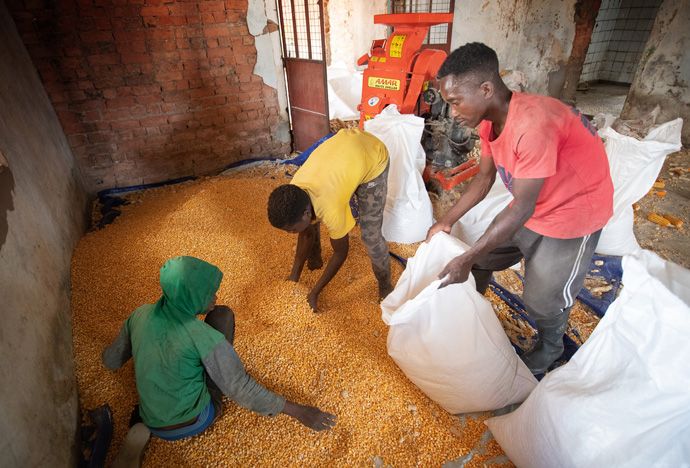
Katembo always tells recipients of the farm’s bounty that they are supported through the United Methodist connection.
“I show them that I’m not the one giving, but the conferences are behind me with support,” he said.
Perhaps no one has seen more change in Quéssua than King, who made her sixth trip there in July — her first since 2008.
“My first trip, it was a former war zone; there were still tanks,” she said. “It was good to see people in the villages with their hope restored. The memories of war are not there; young people got a chance to grow up in a more normal environment.
“I grew up United Methodist and took it for granted until I went to Angola; then I knew what it meant to be a global church.”
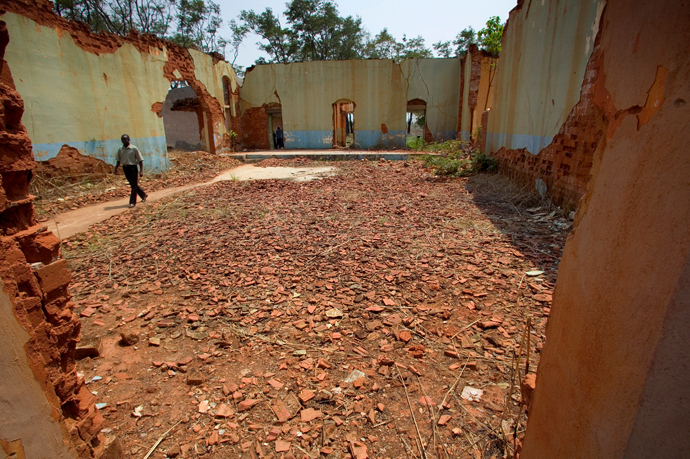
Brown, who retired from the episcopacy in 2016 but is serving as the interim bishop for the Sierra Leone Area, last visited Angola in 2010. Reflecting on the 20th anniversary of a ministry he helped start, he said he is delighted.
“What the bishops and I had hoped for happened, to the benefit of all conferences involved. It made real the mission connection between us and our partners around this globe.”
With talk of schism and disaffiliations dominating church news the past several years, Stine holds this partnership up as a welcome positive story to tell.
“In the midst of such division in the denomination, it’s amazing to see mission dollars at work, to remind us why being United Methodist is so special,” he said. “We can do things better together.”
Butler is a multimedia producer/editor for United Methodist News. Contact him at (615) 742-5470 or newsdesk@umcom.org. To read more United Methodist news, subscribe to the free Daily or Weekly Digests.
